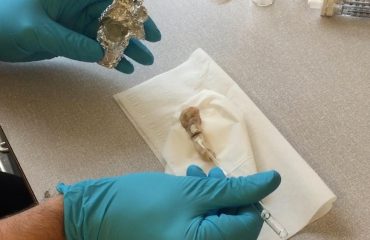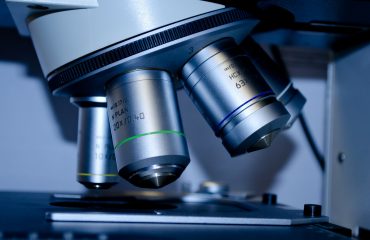Men and women have different strategies to cope with depression, and their doctors should too.
Contrary to what the drug companies would have you believe, there’s no magic “happy pill”. It’s not as easy for us to treat depression with medications as you might think. Many patients need trials on several different kinds of medicine before hitting upon the right one. Often, a medication that has worked for a while stops working; this can be very destructive, as can the process of finding a new one.
Men and women also respond differently to antidepressant medications, something most people don’t know, and I think this is still not sufficiently taken into consideration when doctors are prescribing. For instance, young women are more sensitive to side effects like excessive fatigue on very small doses of medication. Some of these may be due to the effect of estrogen on the brain or to sex-specific ways of metabolizing these medications.
Which drugs work may also be sex-specific. Robert R. Bies, PhD, at the University of Pittsburgh has shown that depressed men with anxiety attacks respond to the older generation of tricyclic antidepressants, such as imipramine (Tofranil), better than women, but women seem to do better with monoamine oxidate inhibitors (MAOIs) such as Parnate.
The fact that men make and metabolize more serotonin may explain why Paxil – a drug that prolongs the amount of time that serotonin lingers in the synapse between neurons – works better in women than men. The difference in response may also be due to a difference in the numbers of receptors for serotonin in the brain between the sexes. There are fewer binding sites for serotonin on men’s blood cells platelets then on women’s.
Something Must Be Done
It should be clear by now that we don’t have a complete picture to explain why women and men suffer depression at such different rates.
What we do know is that this disease has far-reaching effects. Mark Whisman, PhD, and Lauren Weinstock, MS at the university of Colorado started 774 married couples and found something devastating: the level of anxiety and depression in each spouse predicted not only their own marital satisfaction, but their spouse’s as well. Depression influenced both husbands and wives more than anxiety in how they felt about the marriage.
Additionally, the children of depressed mothers are more likely to have behavioral problems, developmental difficulties, and social problems and are themselves more prone to depression than their peers. So when someone is diagnosed with depression, mental health evaluations for the whole family should be the very next step.
The discovery of some basic physiological differences between men and women has helped us to become better doctors and to give better, more individualized care to our patients. Learning the differences between men’s and women’s hearts made us better cardiologists. The same must be true about studying the brain in order to improve what we know about and how we treat mood disorders such as depression. Because this disease has such far-reaching effects, it is absolutely imperative that we do what we can to establish why these differences exist and how they might be remedied.
Marianne J. Legato, MD, Ph. D. (hon. c.), FACP is an internationally renowned academic, physician, author, lecturer, and pioneer in the field of gender-specific medicine. She is a Professor Emerita of Clinical Medicine at Columbia University College of Physicians & Surgeons and an Adjunct Professor of Medicine at Johns Hopkins Medical School. Dr. Legato is also the Director of the Foundation for Gender-Specific Medicine, which she founded in 2006 as a continuation of her work with The Partnership for Gender-Specific Medicine at Columbia University. She received an honorary PhD from the University of Panama in 2015 for her work on the differences between men and women.
At its core, gender-specific medicine is the science of how normal human biology differs between men and women and how the diagnosis and treatment of disease differs as a function of gender. Dr. Legato’s discoveries and those of her colleagues have led to a personalization of medicine that assists doctors worldwide in understanding the difference in normal function of men and women and in their sex-specific experiences of the same diseases.
She began her work in gender-specific medicine by authoring the first book on women and heart disease, The Female Heart: The Truth About Women and Coronary Artery Disease, which won the Blakeslee Award of the American Heart Association in 1992. Because of this research, the cardiovascular community began to include women in clinical trials affirming the fact that the risk factors, symptoms, and treatment of the same disease can be significantly different between the sexes. Convinced that the sex-specific differences in coronary artery disease were not unique, Dr. Legato began a wide-ranging survey of all medical specialties and in 2004, published the first textbook on gender-specific medicine, The Principles of Gender-Specific Medicine. The second edition appeared in 2010 and the third edition, dedicated to explaining how gender impacts biomedical investigation in the genomic era, won the PROSE Award in Clinical Medicine from the Association of American Publishers in 2018. A fourth edition is forthcoming.
She also founded the first scientific journals publishing new studies in the field, The Journal of Gender-Specific Medicine, and a newer version, Gender Medicine, both listed in the Index Medicus of the National Library of Medicine. She has founded a third peer-reviewed, open access journal, Gender and the Genome, which focuses on the impact of biological sex on technology and its effects on human life.
Dr. Legato is the author of multiple works, including: What Women Need to Know (Simon & Schuster, 1997), Eve’s Rib (Harmony Books, 2002), Why Men Never Remember and Women Never Forget (Rodale, 2005), Why Men Die First (Palgrave, 2008), The International Society for Gender Medicine: History and Highlights (Academic Press, 2017), and most recently, The Plasticity of Sex (Academic Press, 2020). Her books have been translated into 28 languages to date.
As an internationally respected authority on gender medicine, Dr. Legato has chaired symposia and made keynote addresses to world congresses in gender-specific medicine in Berlin, Israel, Italy, Japan, Panama, South Korea, Stockholm, and Vienna. In collaboration with the Menarini Foundation, she is co-chairing a symposium on epigenetics, Sex, Gender and Epigenetics: From Molecule to Bedside, to be held in Spring 2021 in Italy. She maintains one of the only gender-specific private practice in New York City, and she has earned recognition as one of the “Top Doctors in New York.”





